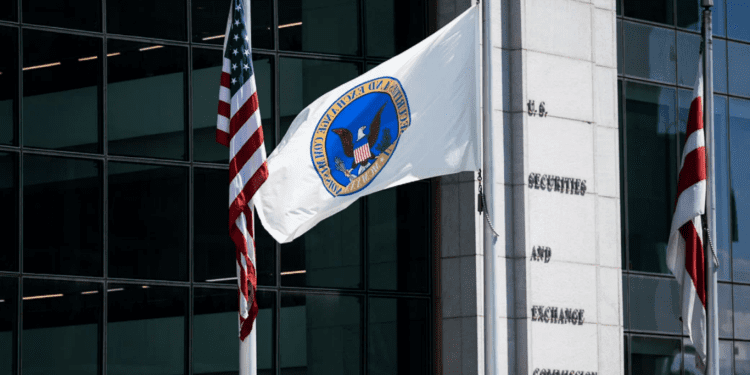Financial watchdogs issued a warning to investors that specifically targeted self-directed individual retirement plans that might have cryptocurrency exposure.
- Investors considering particular individual retirement plans with exposure to cryptocurrencies are advised to be cautious, according to three financial watchdogs in the US.
- Since many of the trading platforms for these crypto-assets refer to themselves as “exchanges,” investors could believe that they have registered with the SEC.
Investor’s Alert
The North American Securities Administrators Association, the Financial Industry Regulatory Authority, and the Office of Investor Education and Advocacy of the United States Securities and Exchange Commission warned on February 7 that self-directed individual retirement accounts, or IRAs, may contain assets that carry risks, such as cryptocurrencies. The agencies claim that some of the IRAs above “may expose customers to cryptocurrency assets that qualify as securities without SEC registration or a qualified exemption from registration” and without providing them with the information, they need to make wise investment decisions.
Investing Through Self-Directed IRAs
Tax advantages are offered to investors for retirement savings through Individual Retirement Accounts (IRAs). Traditional and Roth IRAs, Simplified Employee Pension (SEP) IRAs, Savings Incentive Match Plan for Employees (SIMPLE) IRAs, and Individual Retirement Accounts (IRAs) in general are some examples of prevalent IRAs. All IRA accounts are held on behalf of investors by custodians, which can be banks, trust organizations, or any other organization recognized by the Internal Revenue Service (IRS) as qualified to serve in that capacity.
In contrast to most IRA custodians, a self-directed IRA is housed by a custodian and allows investing in a broader range of assets. Retirement funds may be invested in “alternative assets” such as property, precious metals and other commodities, digital assets, private placement securities, promissory notes, and tax lien certificates by self-directed IRA investors with the permission of the custodians. Investors should consider the unique risks associated with investing in these assets. These hazards can include the possibility of fraud and a lack of knowledge and liquidity.
Self-Directed IRA Risks
While risk is associated with every investment, self-directed IRAs have some unique dangers compared to IRAs provided through licensed broker-dealers and investment advisers. A lack of legal and regulatory protection and a higher chance of fraud are some of these dangers, primarily when investing in alternative assets.
Custodians of self-directed IRAs are only accountable for holding and managing the account’s funds. Additionally, many custodial contracts between a self-directed IRA custodian and an investor expressly indicate that the self-directed IRA custodian is not liable for the performance of investments.
Lawmakers Targeting Crypto Investors
Following a turbulent year that saw numerous cryptocurrency firms declare bankruptcy and high-profile fraud cases like the one involving the former FTX CEO Sam Bankman-Fried, many lawmakers and authorities have focused on crypto investments, both inside and outside of retirement plans. Letitia James, the attorney general of New York, suggested banning cryptocurrency purchases in IRAs and defined contribution plans in November. In December, Senator Cynthia Lummis, a cryptocurrency supporter, stated that she remained in favor of including Bitcoin in 401(k) retirement plans.
The last area of worry was volatility, custody, and value uncertainty. The NYAG, however, made it clear that there is a difference between digital assets and blockchain technology. She agrees that Americans should be able to use retirement funds to invest in publicly traded blockchain-based companies.
Conclusion
Numerous market players have criticized the ambiguity around which crypto projects are regarded as securities or under what regulatory framework they do so in the United States. After 18 months of conversations with regulators, the cryptocurrency lending company Nexo revealed plans to stop operations in the United States in December progressively.














